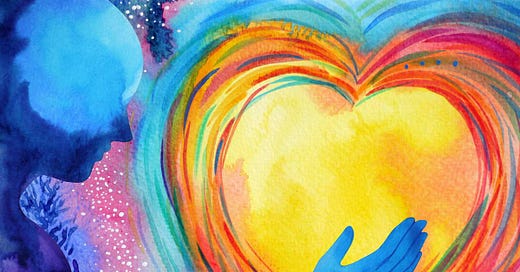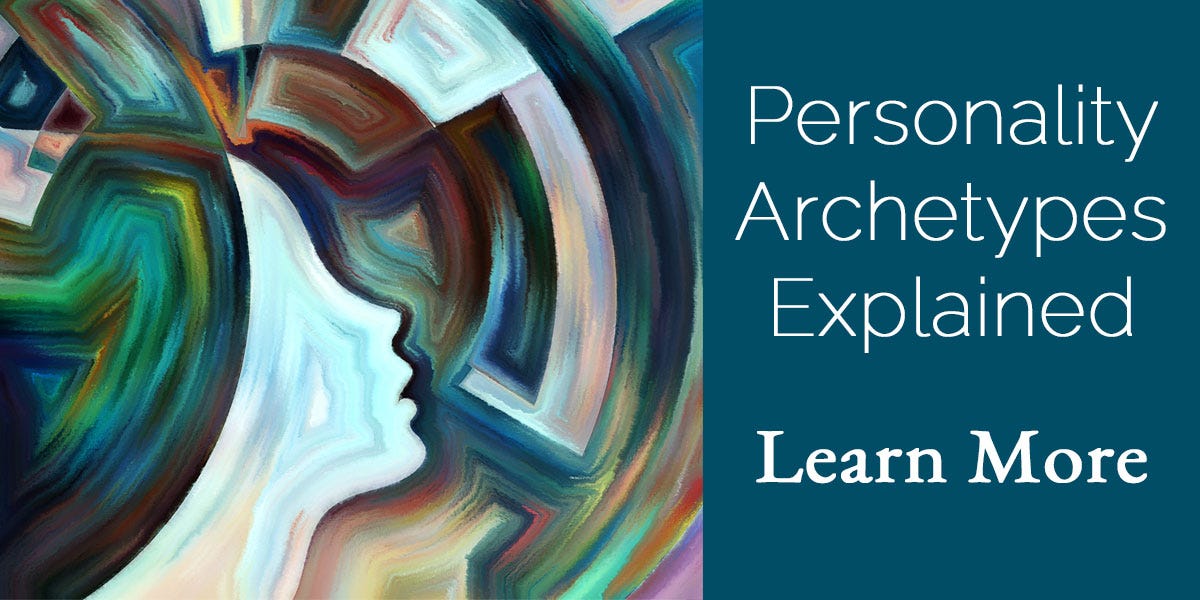Upcoming workshop: Personality Archetypes Explained - Sept 18
All of us benefit from the strength of the survivor archetype that courageously carries us to the other shore. This archetypal pattern is a fundamental part of human nature. As our experience with the survivor increases and we learn how to leverage its gifts, we come further into our authentic selves. Our compassion grows.
Archetypal patterns can’t be changed. And, they can go by different names and descriptions. Our understanding of them increases. There’s always room for rewrites.
When I originally taught archetypes in a prescribed system, I had to use the name “victim”, which I always disliked. That name is a label used to judge ourselves and others. It is a weapon rather than a tool for exploration.
By calling someone a victim we further victimize them. This is in direct contrast to the gifts of strength and compassion this archetypal pattern possesses.
This archetype is better known as the “survivor”. This name encompasses all the patterns of this archetype:
Experiences of victimization
The confidence needed to heal from attacks
The compassion for other victims that results from understanding suffering
Challenges of the Survivor
The survivor archetype is challenged during times of powerlessness. Uncontrollable forces rage in and destroy everything. Our life becomes completely unrecognizable. Could we have stopped this terrorizing, shattering loss? Maybe, maybe not, but by the time the chaos rains down, it is too late to staunch the devastation.
When all is lost, we are the victim. Shock is real. Agonizing pain is genuine. That blank stare and unresponsive state is honest. This space of utter powerlessness and despair can last five minutes or five years.
This is the challenge of the survivor archetype, the powerless, helpless, hopeless pile of suffering that is overwhelmed by the terror of the experience.
It is important that we understand victimhood as a real state that requires our compassion. Facing the suffering in the world reminds us of our own vulnerability, and that vulnerability is exactly the power we need to move through our own annihilation.
Fawning = People Pleasing
When under threat and our adrenaline rises, we automatically fight, flee or freeze. Did you know there’s a fourth possible response? Fawn.
Fawning is a people pleasing response to a threat that involves placating the perpetrator. Make them happy by any means. Say whatever you need to to get away from them as quickly as possible. This means saying “yes” when every fiber of your being is screaming “no”. This means agreeing with someone when disagreeing means you’ll be abused.
Fighting, fleeing, freezing, and fawning are survival mechanisms run by the survivor archetype. These responses help keep us safe. Rather than beat yourself up for people pleasing and not standing in your truth, remember you did what you had to to stay safe in the moment.
The real problem was that the person threatened and/or attacked you. Now the next task is to sort out what protection you need in place to stay safe going forward, so you don’t have to fawn, fight, flee, or freeze again.
Patience with Playing the Victim
Our tolerance for people who play the victim can grow short. When we see people suffer long past the point of what we feel is reasonable the following happens:
The complaining, misery, and moodiness grows old
We try to cheer them up, convince them to be optimistic
We grumble about how their energy brings us down
When we lose hope for a loved one's hopelessness, we sever ties
This, paradoxically, makes us feel like a victim
On the other hand, you may be the person playing the victim. You may be caught in an endless depression that alienates you from the outside world. You may wish that you could stop whining. You might think that you should be over this by now. Frustration with yourself causes more feelings of victimhood. Whining becomes a power tool you use unconsciously or consciously to manipulate others into noticing you, which feels terrible too.
All of these moods, all of this messiness, are the obstacles the survivor archetype helps us overcome.
Courage to Thrive
Every time you affirm that "I am strong" and "I will make it through this," you are tapping into the infinite power of the survivor archetype. The survivor archetype relies on the power of your soul to see you through unspeakable tragedy.
A gift of the survivor archetype is confidence. Confidence allows us the ability to protect ourselves from victimization. It has the power to bring us out of victimhood and playing the victim.
Triumph comes from the glimmer of hope that always resides in the core of your being. This is not conditional “hope that” things will get better. Instead, it is an absolute hope in the inherent worth and goodness of you and the world around you. To hope is to orient towards the good here, right now.
To learn more about conditional versus absolute hope, see this excellent talk by Evan Thompson on “Enacting Hope”.
Absolute hope helps us move from surviving to thriving. The survivor archetype is willing to finally say "enough" to adversity and strive for something better. Seek a peaceful time where creativity can shine. The survivor is the fundamental champion of freedom from suffering that helps us realize our full potential.
Cultivating Compassion
We want to fix and heal pain. Suffering is uncomfortable. When we resist suffering in ourselves and others, we perpetuate the cycle of victimization.
When we say that being sad is "wrong", we judge ourselves. This judgement only makes the feelings worse. It is okay to be sad, hurt, traumatized, etc. These are natural states. We are not meant to stay in these places indefinitely, but they must be lived through. When we try to shut negative feelings out and make ourselves wrong for feeling bad, we fall deeper into despair.
The survivor brings the gift of cultivating compassion for others and for yourself.
Compassion means to “suffer” (passion) “with” (com-). This does not mean to sink into a deep, dark pit of misery with someone and be unhappy because they are unhappy. To be compassionate means to be beside someone, to love and support them, to bear witness to their pain, and to channel mercy.
We express the survivor’s gifts by:
Meeting negative feelings with equanimity and not exaggerating or downplaying them
Being a compassionate witness and offering love without getting wrapped up in the pain
Reminding ourselves that everyone has traumatizing experiences and that we are not alone
Speaking to ourselves and others with kindness
Compassion is the most powerful healing remedy there is.
EARLY BIRD RATE: $25
Personality Archetypes Explained
September 18th
Learn your personality archetypes and ways to work with them in this small-group, online workshop with Archetype Analyst Stacey Couch. This is for students who are fairly new or brand new to archetypes, AND students of any level who want to learn a new, flexible approach to working with archetypes. Learn the difference between a label, stereotype, and archetype. Receive insight behind the names of personality archetypes. Explore the different sides of personality archetypes from active to passive, challenged to gifted, light to shadow, and helpful and harmful. Start to identify which personality archetypes are yours and how to overcome their challenges and step into their gifts.
Contemplative Meetup for PAID subscribers is Tuesday, July 23rd at 11am Mountain Time. Not a paid subscriber but want to join? Upgrade to paid.
About the Author
Stacey Couch is a Spiritual Advisor who supports creative seekers learning as they go on the spiritual path. She serves beginner and life-long students of the soul. Her compassionate and collaborative approach honors the humanity and value of each person. Through meeting with Stacey, lost souls find refuge. Connection to the Divine is realized. Belonging comes. She is the author of Gracious Wild: A Shamanic Journey with Hawks. Learn about working with Stacey








Love this ❤️❤️